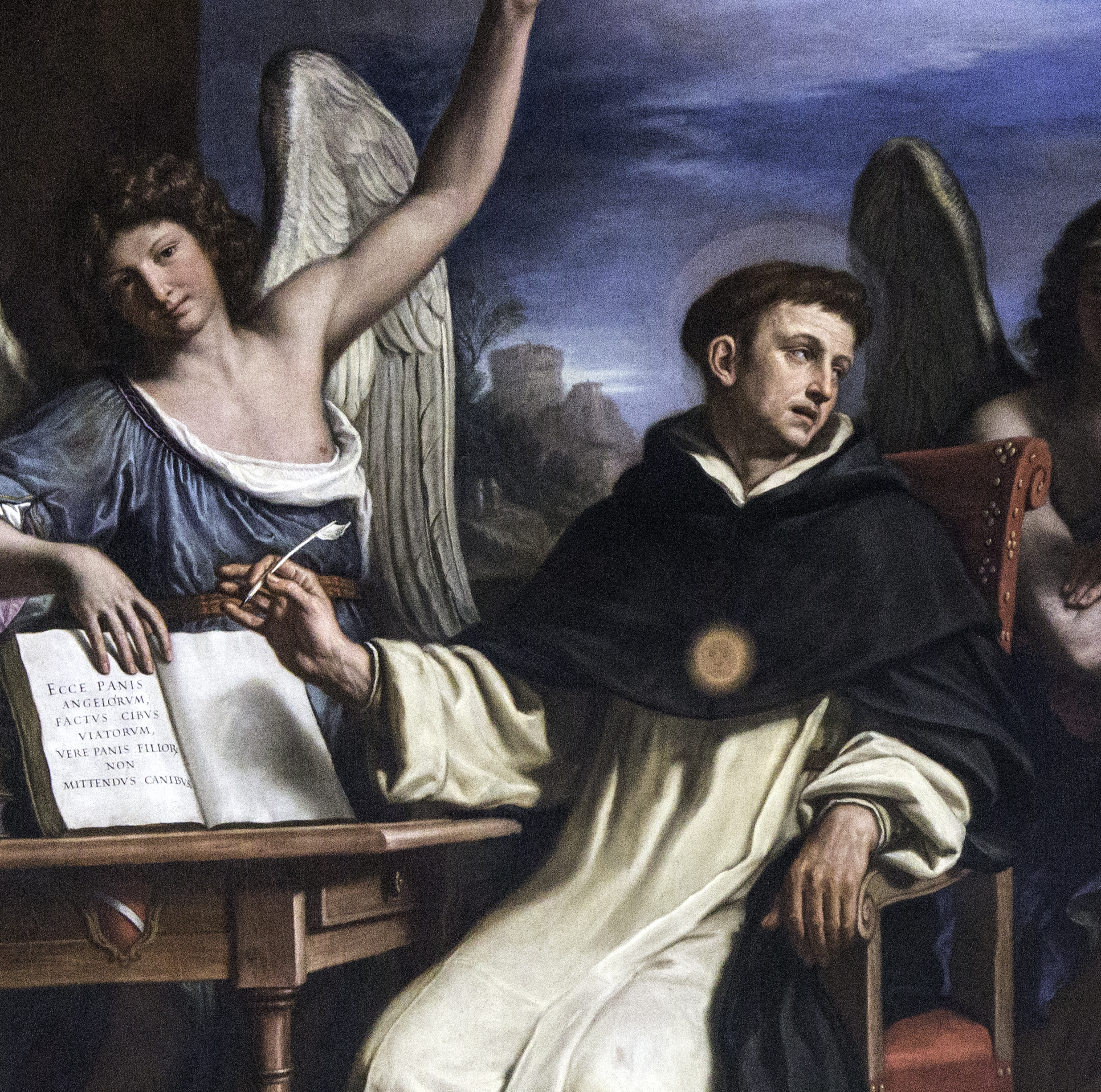Chapter 48: Law¶
Virtues and vices are intrinsic principles of human acts. St. Thomas now turns to the extrinsic principle, to God who causes human acts by His law and His grace.
Law is “a regulation of reason in favor of the common good, promulgated by the ruler of the community.” 1077 Its violation deserves punishment, to re-establish the law. 1078 There are many kinds of law. The highest kind, whence all others are derived, is the eternal law, “the plan by which divine wisdom rules all creatures.” 1079 Natural law, a direct derivation from the eternal law, is imprinted on our rational faculties, inclining them to the end willed by the author of nature. It is immutable, like nature itself. Its first precept is: Do good, shun evil. From this principle follow other natural precepts, relative to the individual, to the family, to social life, and to the worship of God. 1080.
Positive laws, human or divine, presuppose the eternal law and the natural law. Divine positive law is either the Old Law or the New. The New Law is inscribed in our souls before it is inscribed on parchment. It is identified with grace and infused virtue. 1081 It brings the Old Law to perfection. It is the law of love, since it continually recalls the pre-eminence of charity, with its two grand precepts of love for God and neighbor. 1082.
Human laws, coming from human authority, must conform to natural law and to divine positive law. 1083 They must be morally good, just, suited to people and time. They bind in conscience, as derivations from the eternal law. Unjust laws do not bind in conscience, unless their observance is necessary to avoid a greater evil. In such cases we may yield on our rights, but not on our duties. But we may not obey a law which is manifestly against a higher law, especially if the higher law is a divine law. 1084.
On the immutability of the natural law Scotus maintains that the only necessary precepts are those relating to the service of God, whereas God could revoke the precept “Thou shalt not kill,” and then murder would no longer be sin. Thus all relations of man to man would depend, not on God’s natural law, but on His positive law. Occam goes still further, saying that God, being infinitely free, could have commanded us to hate Him. God might thus be, comments Leibnitz, 1085 the evil principle of the Manichaeans rather than the good principle of Christians. This nominalistic doctrine brings forth complete juridical positivism, since it leaves no act intrinsically either good or evil. Gerson 1086 approaches this position, saying there is only one act intrinsically good, namely, the love of God. St. Thomas, on the contrary, holding the natural law to be as immutable as human nature itself, establishes on high a luminary to guide all legislation worthy of the name.
